Micro LED technology is on its way to take off with various applications launched by leading companies across the world. Small size displays for wearable products, middle size display for automotive applications and extra-large TVs are the three major areas targeted by current Micro LED players according to their strategies of Micro LED technology. LEDinside observed several roadmaps of Micro LED technology developments of different leading companies in the field.
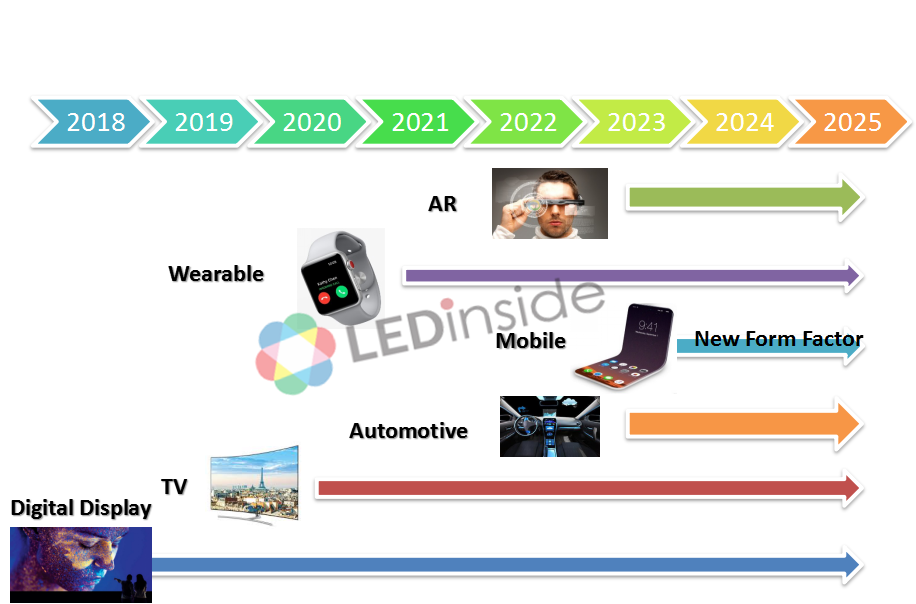
Luxury Micro LED TVs
Since Micro LED technology still faces the challenge of high production cost, large size luxury TV that is less price sensitive targeting high-end customers is an entry point. Samsung and Sony took the road and have already launched their products to the market.
Sony reported the installation of a 16K Micro LED screen for Japan’s cosmetic company Shiseido in April and announced the availability of its Cystal LED display system for consumers in September 2019. Sony is selling the Micro LED display by modular unit for customized installation enabling 4K, 8K or 16K resolution based different sizes. With the reported price of US$10,000 per unit, a 16K screen will cost US$5.76 million.
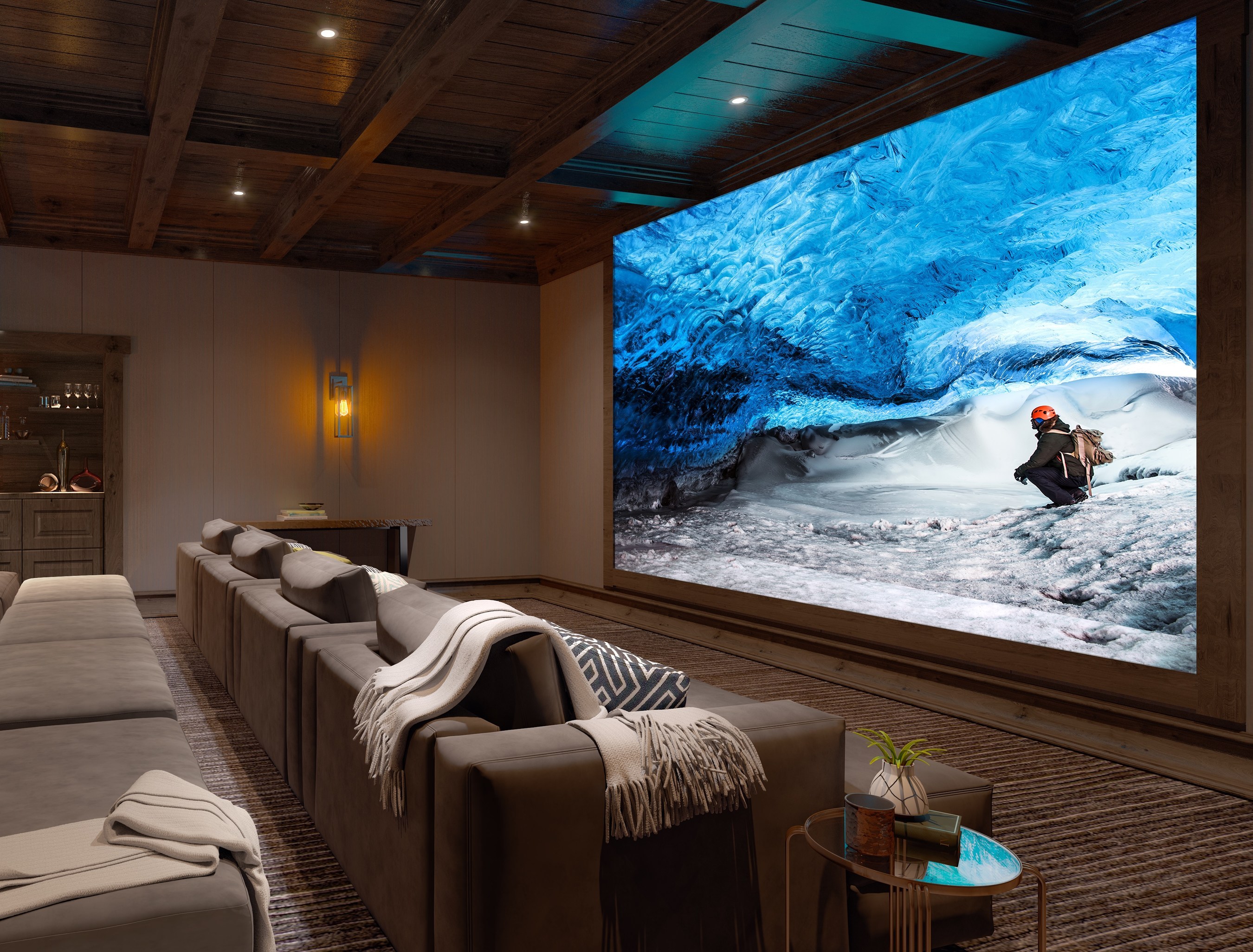
(Image: Sony)
Samsung’s Micro LED display “The Wall,” firstly debuted in 2018, has also been installed for high-end event. The displays were set up during Paris Fashion Week and Monaco Yacht Show. The Korean giant announced its mass production plan for The Wall back in July 2018.
Micro LED-based Automotive Applications: Headlight and Displays
Automotive LED providers including Nichia and Osram both announced their development plan of Micro LED based headlight in September.
Nichia is cooperating with Infineon to create high-definition Micro LED matrix headlight that include 16,000 Micro LED chips to deliver high resolution light for innovative applications. With individual control of each LED, the headlight can deliver different light patterns and project marks and signals on the roads. Osram also revealed its development progress of the second generation of its hybrid LED “Eviyos,” featuring individually controlled 25,600 pixels.
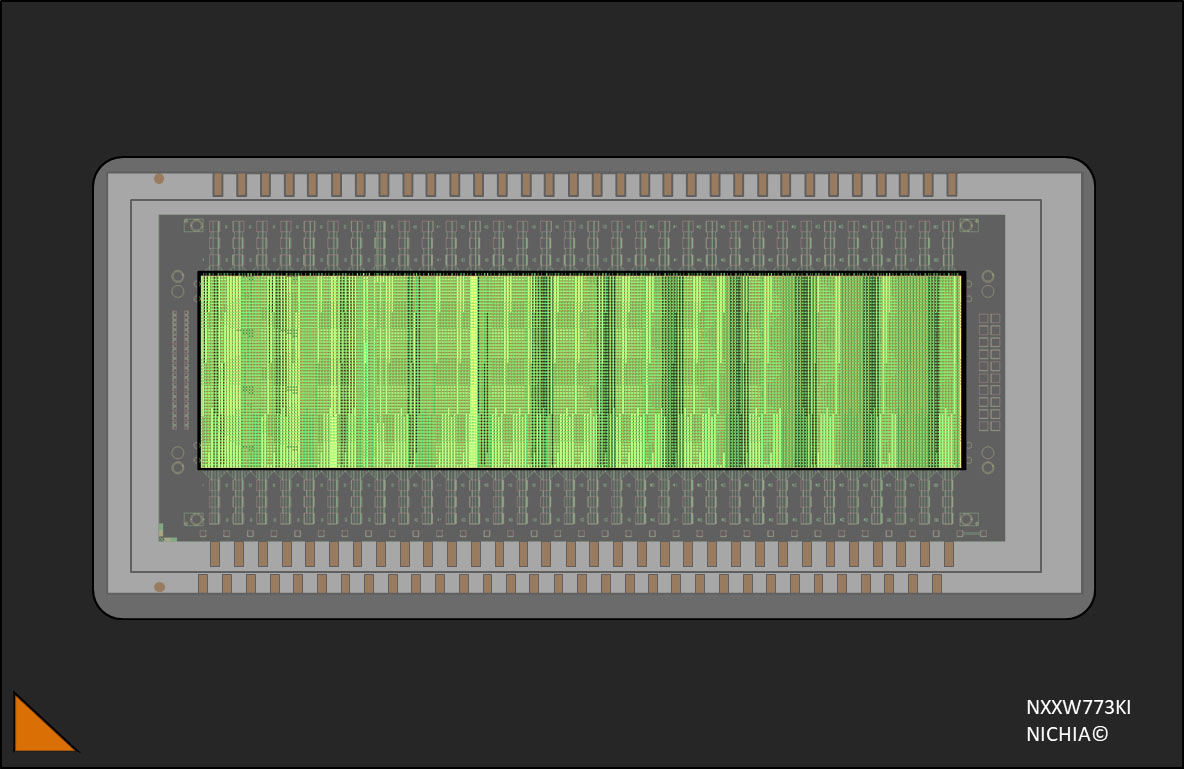
(Image: Nichia)
The two automotive LED producers aim to release these Micro LED based automotive product by 2023.
Panel makers also push the development of Micro LED automotive display as the technology features high brightness, high resolution and low power consumption. Demonstration of Micro LED automotive displays usually is led by integration between chip makers, Micro LED technology builders and panel producers. For example, Lextar teamed X-Display, the subsidiary of X-Celeprint to showcase transparent Micro LED displays with high brightness. PlayNitride also worked with Tianma on transparent displays.
AUO presented its Micro LED automotive display created by its proprietary transferring technology and expects to debut the product in 2024.
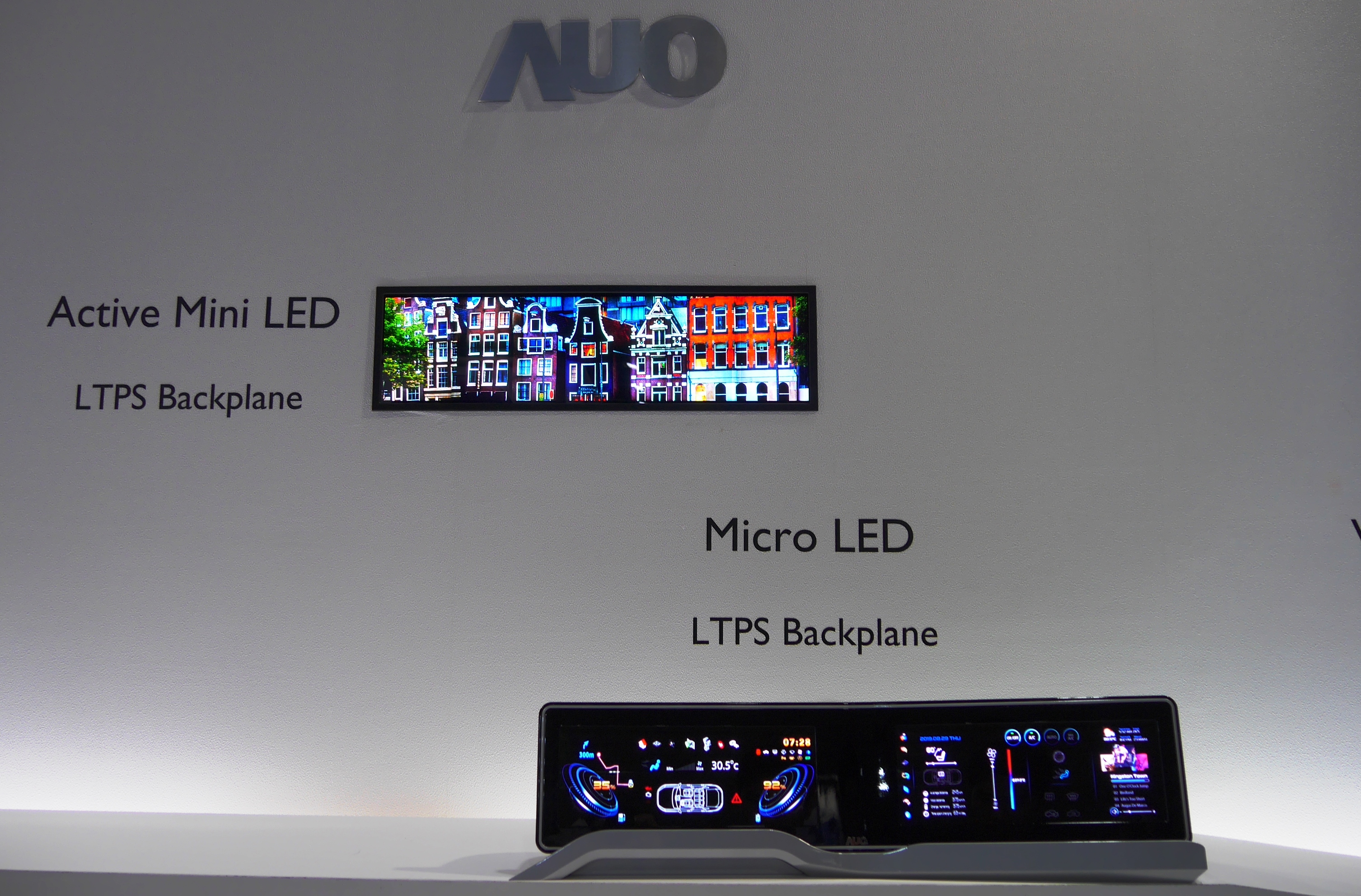
Small and High Resolution Micro LED Display for Wearable Devices
Wearable devices including smart watches and eyewear with AR/VR function have been the goal of many big names including Apple, Facebook and Google. Currently, Plessey from the UK is taking the lead in Micro LED based AR device with its GaN-on-Si Micro LED display technology. Meanwhile, Taiwan’s PlayNitride and RiTdisplay are working on small size Micro LED displays for smart watches.
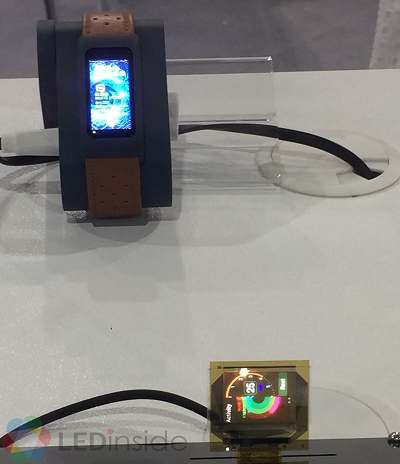
Apple, with continuous rumors of releasing Micro LED Apple Watch, has published several Micro LED related patents recent years which might imply its development of Micro LED AR/VR devices.















